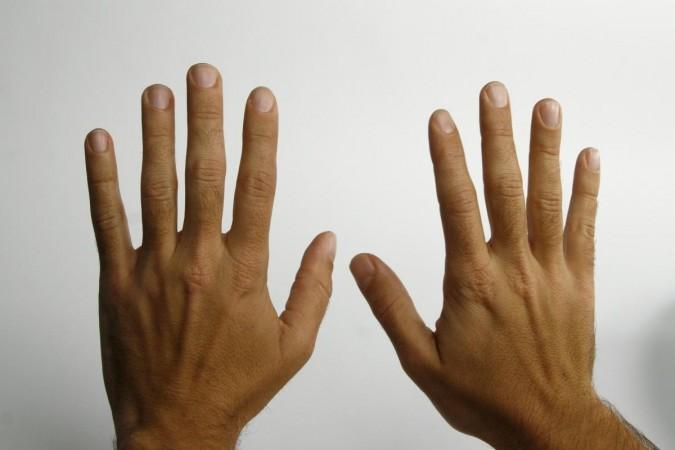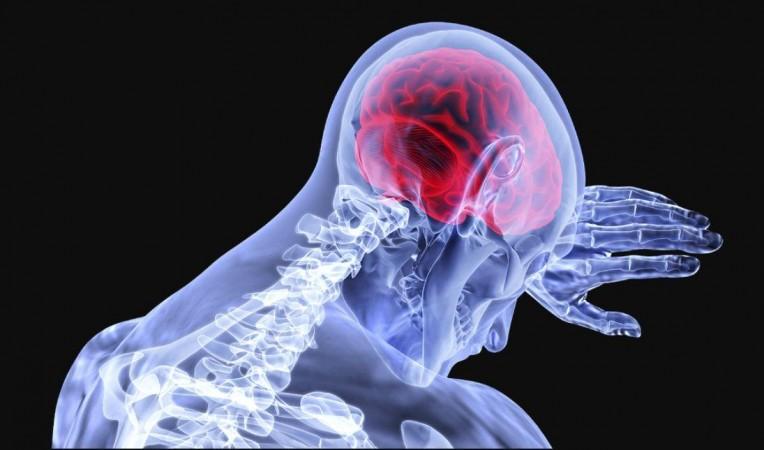Survivors of strokes often struggle from long-term effects—sometimes debilitating—such as impairment of vision, cognition, mobility, and speech, among others. They can also experience chronic pain as a consequence of their stroke. However, can this pain cause them to believe that the size of their body parts has altered? Yes, say reserachers.
According to a first-of-its-kind study, body perception in stroke survivors with persistent pain can be modified. The multi-institutional research found that stroke patients experiencing chronic pain perceived the size of their hands to be different than what it was before suffering a stroke. It was also learnt that survivors living with chronic pain were nearly three times as likely as survivors without pain to undergo altered body perception.
"These remarkable findings show us that we are perhaps more complex creatures than we previously thought," said Dr. Lorimer Moseley, in a statement. The findings were published in the journal Brain Sciences.
Altered View of One's Body

Distorted body perception refers to an individual's misperception about the features of their body. The condition has been documented in patients suffering from a wide range of problems such as amputation, acute chronic pain, and eating disorders, among others. However, no link between distorted body perception and pain after stroke has been established so far.
Dr. Moseley highlighted that both persistent pain (lasting for over three months) and stroke are associated with anxiety and depression, increased fatigue, and impaired cognition. Hence, distorted body perception could potentially magnify these ailments, he stressed.
Through the current research, the team aimed to ascertain whether survivors of sub-acute and chronic stroke (i.e., diagnosed three months prior or lesser) who experience chronic pain had higher chances of reporting changes in body perception—particularly hands—than survivors without pain. If such a relationship existed, the authors wished to determine whether it was connected to the pain-affected region.
Understanding Link Between Perception and Pain

For the study, the team enrolled 523 stroke survivors who had experienced one or more strokes. The participants completed an online survey that gathered essential data such as their demography, medical history, pain features, and any difference in perceived hand size following a stroke, among other stroke-related information.
The survey also posed the enrollees with an important question: "Since your stroke, does it feel like your hand is now a different size?" If their answer was "yes", they were asked whether their hands appeared smaller or larger to them following their stroke. The analysis of the collected data yielded two remarkable findings.
Chronic Pain Caused Distorted Body Perception

The first finding was that three out of five stroke survivors live with chronic pain—around 300 percent greater than that observed among the general population. Second, survivors living with pain have a higher likeliness of perceiving considerable changes in the size of their hands, which according to Dr. Moseley is "a potential double whammy" that can compound the difficulties associated with executing daily activities and affect the quality of life.
In addition, distorted body perception was found to be two times more likely when the pain was reported in the hand. This, according to the researchers, is consistent with other populations who suffer from chronic pain arising from conditions such as knee osteoarthritis, where nearly 30 percent of sufferers believe that swelling exists in their knees despite its absence. No association was observed between strokes affecting a particular side of the body and chronic pain in the study.
According to the team, the findings of the study indicate that rehabilitation aimed at tackling distorted body perception in stroke survivors may improve function and pain-related outcomes in them. Dr. Moseley concluded: "The next step is to identify whether body perception disturbance is contributing to pain in these patients. If it is, we need to devise treatments to address this."









